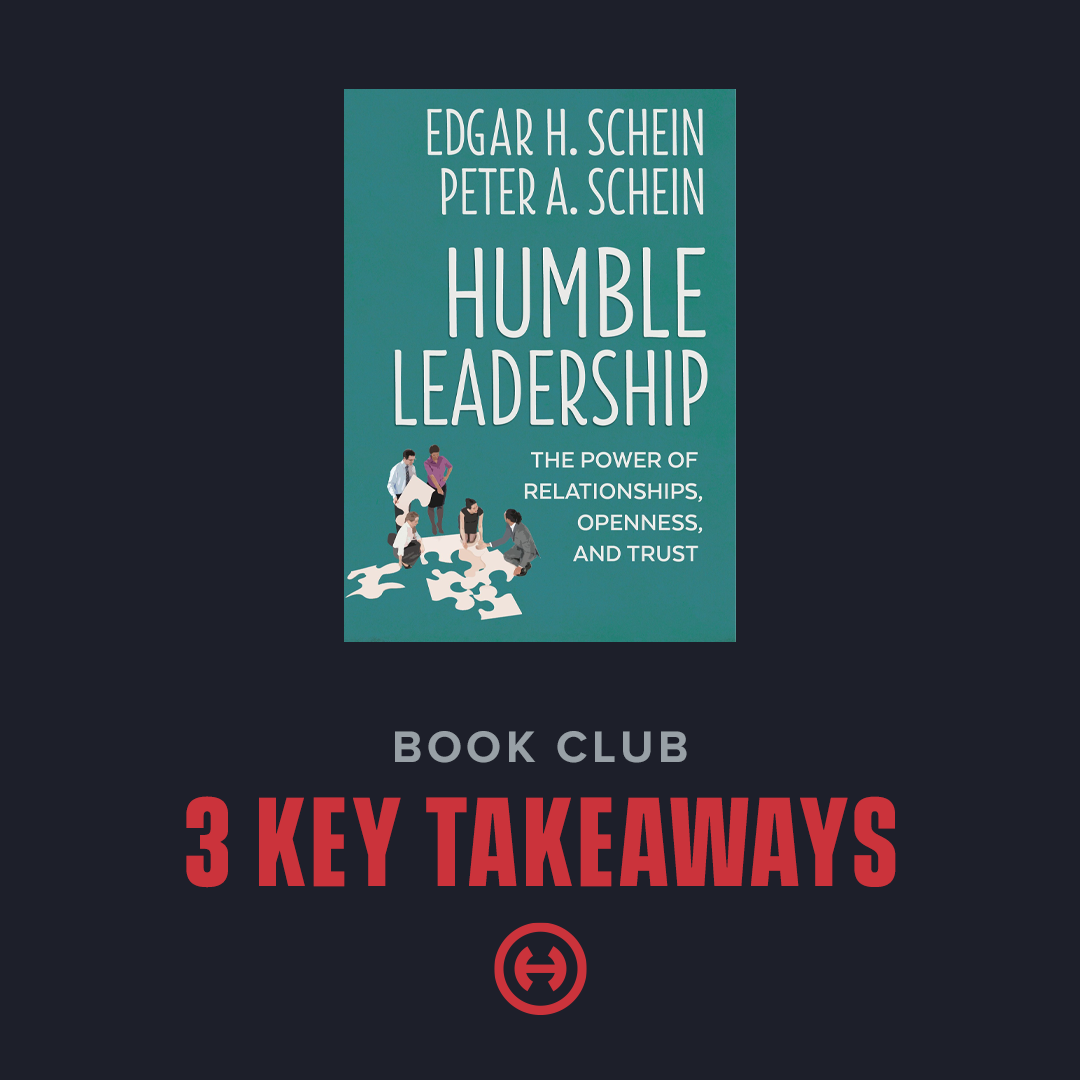In our most recent agency book club, we discussed “Humble Leadership: The Power of Relationships, Openness, and Trust” by Edgar H. Schein and Peter A. Schein.
The book dives into new leadership styles that are better suited for the modern office – be it remote or hybrid.
Addressing the previously accepted norms within the upper rungs of leadership, the Schein brothers take a critical look at workplace culture from previous generations and explore the evolution of modern offices. Offering insights into navigating workplace shifts influenced by rapid changes in the political landscape, globalization, new tech and a dynamic economy – the book discusses the need for a new paradigm of leadership and what it should look like in action.
If you’re looking for a read that can help you rethink the value of relationships in the workplace, you can pick up a copy here. If you’re short on time, however, we’ve compiled the top three takeaways.
The Fallacy of Heroic Leadership
American business culture was built in a world of “Heroic Leadership” where visionary entrepreneurs led companies of workers through the output of their individual genius. We see those stories in the lives of Gilded Age titans like Rockefeller and Carnegie, as well as in inventors like Edison. One hundred years later, we saw those stories again with the likes of Steve Jobs and Bill Gates.
However, if we think critically about those stories, the narrative doesn’t ring as true today due to the complexity of the products involved in the modern business environment. Supporting Jobs and Gates were countless skilled programmers and designers making it all possible.
To build a successful culture, we must move away from the fallacy of heroic leadership and instead embrace the practices of Humble Leadership.
The Rise of Humble Leadership
Humble Leadership was born out of changing perceptions of what is needed to be successful at work, but it is not about being nice. Instead, these leadership practices are built around the idea that connectedness enables “whole people” to come together to build environments that ensure success given today’s workplace challenges. That means forming personalized relationships with others to increase the level of trust among colleagues and reduce the amount of fear of speaking up – which can encourage sharper, more inclusive decisions.
Some helpful considerations below:
- Relationships: Understand how someone is going to react because of your history
- Personalization: Operate as though we are all not just cogs in a machine, but unique players in a symphony orchestra
The Value of Humble Leadership
The level of leadership organizations possess across their teams can be directly correlated to the performance and success of their business. The highly transactional style of the early 1900s was suited to the simple and programmable tasks of the past but is ill-suited to the highly complex knowledge tasks of the present day.
The changing business landscape requires stronger and more personal relationships to create the environment for business success.
Creating a positive culture of connection matters, as research has demonstrated again and again. Investing in culture forges stronger collaboration throughout the workplace and allows staff to feel supported to do their best work.
Teams with strong relationships are more likely to:
- Stay alert and catch mistakes/errors before the work leaves the building
- Introduce new ideas and thinking
- Willingly engage in the collective action required to successfully complete projects (e.g., volunteering to help with additional tasks, seizing ”yes, and” moments)
Leading with a humbled spirit can forge strong, loyal bonds within your organization, resulting in an environment of success. Are you interested in infusing humble leadership into your brand strategy? Email Dana Arnold at darnold@hiebing.com to set up a call.
